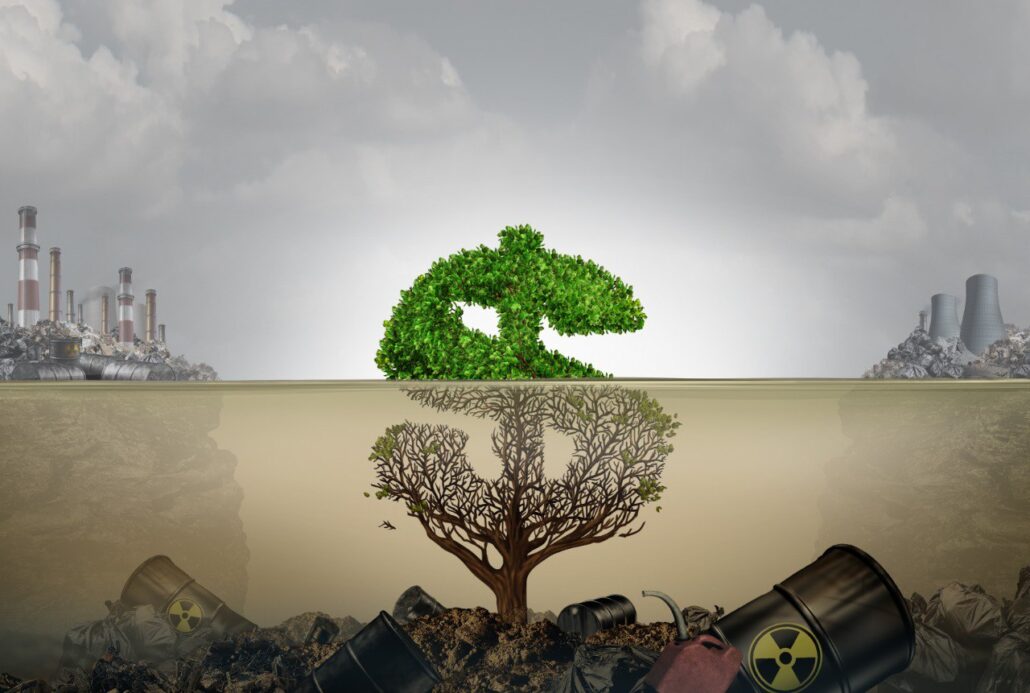 https://greenmarked.it/wp-content/uploads/2024/06/agriculture-2361978_1280.jpg
779
1280
Etienne Hoekstra
https://greenmarked.it/wp-content/uploads/2022/01/LOGO-GREENMARKED-SITO-600x600.png
Etienne Hoekstra2024-06-28 18:34:132024-06-29 10:24:20Balancing Agriculture and Sustainability in the EU
https://greenmarked.it/wp-content/uploads/2024/06/agriculture-2361978_1280.jpg
779
1280
Etienne Hoekstra
https://greenmarked.it/wp-content/uploads/2022/01/LOGO-GREENMARKED-SITO-600x600.png
Etienne Hoekstra2024-06-28 18:34:132024-06-29 10:24:20Balancing Agriculture and Sustainability in the EUSeptember 26, 2023

The European Union (EU) has taken an important step towards promoting transparency and consumer empowerment by agreeing on a pioneering set of measures aimed at tackling greenwashing and increasing consumer awareness about product sustainability and durability [1]. This development follows a global trend of growing environmental awareness and the need to ensure that environmental claims match real efforts to combat climate change and protect our planet [2].
In a previous blog post, we explored how internationally renowned companies often use offsetting as a way to make green claims, highlighting the importance of understanding the underlying methodologies and analyses behind such claims.
Ban on misleading practices
The EU’s latest initiative targets misleading marketing tactics, including the widespread problem of greenwashing. These new rules aim to protect consumers from misleading practices and provide them with the necessary information to make well-considered choices when buying products.
Here is what you need to know:
1. Generic Environmental Claims: The EU will ban vague and generic environmental claims such as “environmentally friendly”, “natural”, “biodegradable”, “climate neutral”, or “eco”, unless these claims can be substantiated with recognized evidence of excellent environmental performance.
2. Product Durability: Companies will be prohibited from marketing goods with features that limit their durability without providing information about these features and their impact on the product’s longevity.
3. Emissions Offsetting Claims: Claims that a product has a neutral, reduced, or positive impact on the environment through emissions offsetting schemes will be banned unless backed by credible evidence.
4. Certified Sustainability Labels: Only sustainability labels based on approved certification schemes or established by public authorities will be permitted. This move ensures that sustainability claims are validated by recognized entities.
5. Guarantee Information: The EU will make guarantee information more visible to consumers. Many people are unaware that all goods come with a two-year guarantee in the EU. This initiative aims to enhance consumer knowledge and protect their rights.
6. Extended Guarantee Label: Producers who voluntarily extend their product guarantees free of charge will be able to display a new label highlighting the quality and durability of their goods [1].

Fig. 1: Financial costs of pollution. Copyright-free photo by Lightspring on Shutterstock.
Empowering consumers
As the EU takes the lead in these efforts to promote transparency and empower consumers, it is sending a clear message to companies that greenwashing and misleading marketing practices will no longer be tolerated. This initiative is in line with a global movement towards sustainability and responsible consumption and emphasises the fundamental right of consumers to accurate and reliable information when making choices that affect our environment [1].
The EU’s proposal includes common criteria that provide consumers with greater clarity and assurance that when something is marketed as a green product, it truly lives up to that claim. This empowers consumers with better information to make environmentally friendly choices in their purchases [3].
Simultaneously, businesses are stimulated to enhance the ecological sustainability of their products, aiding consumers in recognizing these environmentally conscious choices. This supports genuine businesses in their sales efforts while combating unfair competition. Ultimately, this contributes to a level playing field regarding information on the environmental performance of products [3].
In conclusion, the EU’s proactive stance against greenwashing and deceptive marketing practices signifies a significant step toward a more transparent and sustainable future. By empowering consumers and encouraging responsible business practices, these measures create a win-win scenario where both consumers and genuine businesses benefit, setting the stage for a more environmentally conscious marketplace.
Related articles:
References:
[1] European Parliament. (2023, 19 September). EU to ban greenwashing and improve consumer information on product durability. Retrieved from https://www.europarl.europa.eu/news/nl/press-room/20230918IPR05412/eu-to-ban-greenwashing-and-improve-consumer-information-on-product-durability
[2] Frey, S., Bar Am, J., Doshi, V., Malik, A. & Noble, S. (2023, February). Consumers care about sustainability—and back it up with their wallets. Downloaded from https://www.mckinsey.com/~/media/mckinsey/industries/consumer%20packaged%20goods/our%20insights/consumers%20care%20about%20sustainability%20and%20back%20it%20up%20with%20their%20wallets/consumers-care-about-sustainability-and-back-it-up-with-their-wallets-final.pdf?shouldIndex=false
[3] Dutch Ministry of Foreign Affairs. (2023, 27 March). European Commission makes proposal to crack down on greenwashing and misleading environmental claims [Translated by Author]. Retrieved from https://ecer.minbuza.nl/-/europese-commissie-doet-voorstel-om-greenwashing-en-misleidende-milieuclaims-tegen-te-gaan
Cover and preview photo: Greenwashing malpractice. Copyright-free photo by Ivan Marc on Shutterstock.










